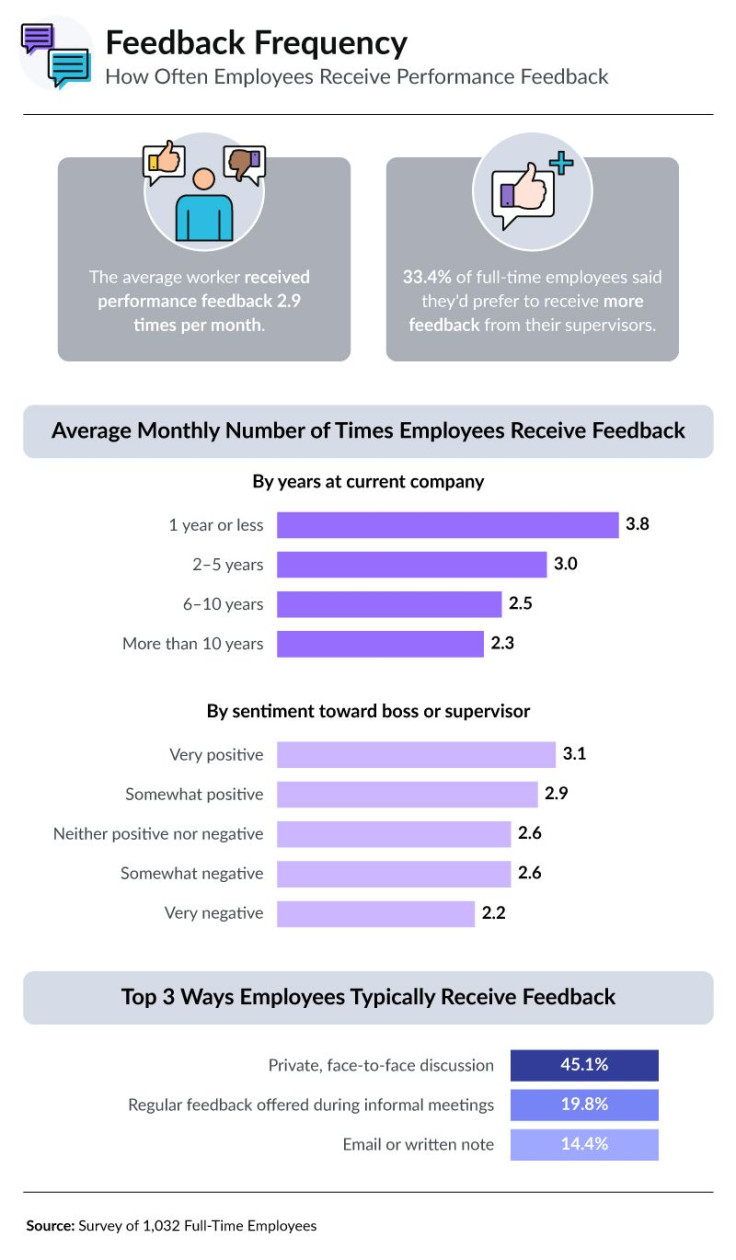Do You Know What Your Boss Thinks Of You? Survey Says Employees Want More Feedback

Business culture is shifting as millennials move into management and baby boomers settle into retirement, and with that comes a recognition that the new generation of employees wants more feedback.
A study by Joblist indicates that though employees want more feedback, they often don’t know how to handle it. The survey queried 1,032 full-time employees to determine how often they received workplace feedback and how it impacted attitude.
Employee evaluations are used to measure job performance, set pay scales and determine whether an employee’s skill set matches a company’s needs. The Society for Human Resource Management recommends evaluations be performed at least annually on a set schedule and that notice be given ahead of time so an employee can prepare.
The survey indicated employees don’t think annual performance reviews are enough with a full third saying they would prefer to hear from their supervisors more often. Nearly half, 45.1%, said they’d like to receive that feedback in face-to-face discussions while 19.8% said they preferred informal meetings and 14.4% said they’d like the feedback via email. More than half said a simple thank you would suffice in lieu of a meeting.
Those with the least time on the job said they wanted feedback – maybe four times a month -- as did those who liked their bosses – three times a month.
“Our findings indicated that workers who received feedback from their boss 3.1 times per month were more likely to have very positive feelings toward them. Conversely, those who only heard from a manager 2.2 times per month tended to feel very negative,” the survey found.
The study indicated the way feedback is delivered has an impact on morale with those receiving feedback publicly or by email having little motivation while 59.3% of those who received regular feedback during informal meetings were extremely motivated.
Nearly half of those responsible for delivering feedback (48.4%) said they felt awkward doing so, partly because not all employees take criticism well, with 17.3% leaving jobs after receiving a negative evaluation.
The survey indicated millennials ask the most questions about feedback and seek advice on how to improve while generation Xers were the most likely to get defensive.
The survey also measured emotional intelligence, finding those who said feedback was helpful also scored high on the emotional intelligence scale.
The survey included 224 baby boomers, 320 gen Xers and 488 millennials, with 25.5% entry-level workers, 44% associates and 1.2% executives. Nearly 29% were managers. Those surveyed had been working for their companies an average 6.7 years.
© Copyright IBTimes 2024. All rights reserved.






















